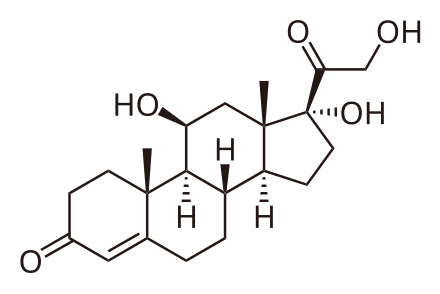Addison's Disease
Addison's disease, also known as primary adrenal insufficiency, is a rare, chronic endocrine disorder where the adrenal glands do not produce sufficient amounts of the steroid hormones cortisol and aldosterone. This condition leads to various symptoms that can significantly affect a patient's quality of life and can be life-threatening if not treated properly.
Signs and Symptoms
Symptoms of Addison's disease develop gradually and can be mistaken for other conditions. Common symptoms include abdominal pain, muscle weakness, fatigue, weight loss, and gastrointestinal disturbances such as nausea and vomiting.
Patients often experience a darkening of the skin, particularly in areas exposed to friction, due to increased production of melanocyte-stimulating hormone. Other symptoms may include low blood pressure, dizziness upon standing, salt cravings, and mood changes.
Women may also experience loss of armpit and pubic hair and decreased libido.


Adrenal Crisis
An adrenal crisis is a severe, acute condition that can occur in individuals with Addison's disease, characterised by sudden pain in the abdomen, lower back, or legs, severe vomiting and diarrhoea, dehydration, low blood pressure, and loss of consciousness. It requires immediate medical intervention as it can be fatal if untreated.
Causes
Addison's disease primarily results from autoimmune destruction of the adrenal cortex, accounting for the majority of cases in developed countries. Other causes include infections like tuberculosis, adrenal haemorrhage, metastasis from other cancers, and genetic disorders affecting adrenal development or steroid synthesis.

Diagnosis
Diagnosis involves blood tests to measure levels of cortisol, ACTH (adrenocorticotropic hormone), sodium, and potassium. A definitive diagnosis is usually made using the ACTH stimulation test, where synthetic ACTH is administered and blood cortisol levels are measured before and after the injection.
Imaging studies, such as CT or MRI, may be used to identify any structural abnormalities of the adrenal glands.


Treatment
Maintenance
Lifelong hormone replacement therapy is essential for managing Addison's disease. This typically involves oral corticosteroids like hydrocortisone or prednisone to replace cortisol and fludrocortisone to replace aldosterone.
Patients are advised to carry emergency identification indicating their condition and to have injectable corticosteroids available in case of an adrenal crisis.
Crisis Management
An adrenal crisis requires immediate treatment with intravenous corticosteroids and large volumes of intravenous saline with dextrose to manage dehydration and low blood sugar. Intramuscular injections can be used if intravenous access is not available.
Prognosis
With appropriate treatment, individuals with Addison's disease can lead relatively normal lives. However, they need to be vigilant about managing their condition, particularly during times of stress, illness, or injury, which may require adjustments in their medication dosage.
Epidemiology
Addison's disease affects about 9 to 14 per 100,000 people in the developed world, occurring more frequently in middle-aged females. The overall prevalence of Addison's disease is low, but it requires lifelong management and careful monitoring to prevent life-threatening complications.
Addison's disease, named after Thomas Addison who first described it in 1855, continues to be a very important area of endocrinology requiring comprehensive care and patient education.
Self-assessment MCQs (single best answer)
What is the primary cause of Addison's disease in the industrialised world?
Which of the following is NOT a common symptom of Addison's disease?
What is the main hormone replacement therapy used to treat Addison's disease?
Which test is used to confirm the diagnosis of Addison's disease?
What is an adrenal crisis characterised by?
Which electrolyte imbalance is commonly seen in Addison's disease?
Which hormone is deficient in Addison's disease?
What is the most appropriate emergency treatment for an adrenal crisis?
Which symptom can be a distinguishing feature of Addison's disease due to low aldosterone levels?
What is the typical age range for the onset of Addison's disease?
Dentaljuce
Dentaljuce provides Enhanced Continuing Professional Development (CPD) with GDC-approved Certificates for dental professionals worldwide.
Founded in 2009 by the award-winning Masters team from the School of Dentistry at the University of Birmingham, Dentaljuce has established itself as the leading platform for online CPD.
With over 100 high-quality online courses available for a single annual membership fee, Dentaljuce offers comprehensive e-learning designed for busy dental professionals.
The courses cover a complete range of topics, from clinical skills to patient communication, and are suitable for dentists, nurses, hygienists, therapists, students, and practice managers.
Dentaljuce features Dr. Aiden, a dentally trained AI-powered personal tutor available 24/7 to assist with queries and provide guidance through complex topics, enhancing the learning experience.
Check out our range of courses, or sign up now!


